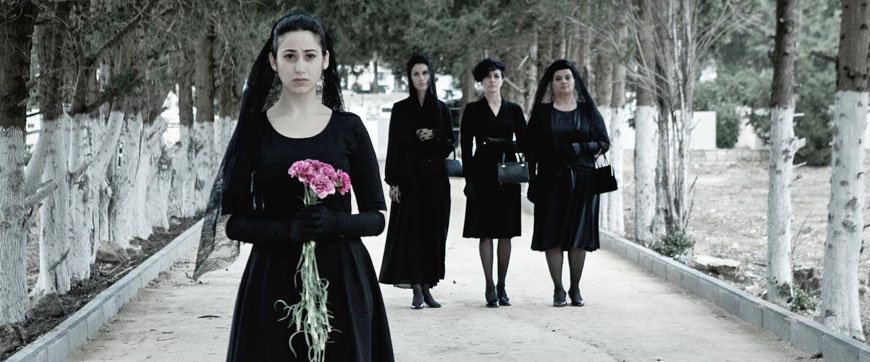AMMAN — Palestinian director and writer Suha Arraf is contributing through her film “Villa Touma” to the shift in Palestinian cinema subjects towards the social sphere, in an attempt to bring back the “human” in the Palestinian image.
Part of the problem of the Palestinian people is that they have been reduced to a mere cause, and the “human being” elements no longer exist in their image, Arraf said in a discussion following the screening of her film at the Rainbow Theatre on Sunday.
“We also only have black and white; we Palestinians are either heroes or martyrs and victims. There’s no middle ground. A human is complex, it has positives and negatives,” she said.
The 2014 film, which was screened in about 30 international festivals and has won several awards, tells a story set in 2001, of three unmarried sisters from an aristocratic Christian family living in “occupation post-trauma” and in self-imposed semi-exile, where they have frozen time in the pre-1967 era, until their orphan niece (Maria Zreik) turns 18 and they unwelcomingly take her in.
Partly in an attempt to get rid of her, the aunts, played by actresses Nisreen Faour, Ula Tabari and Cherien Dabis, try to teach her the skills needed to be a high society lady, and start attending a series of weddings, funerals and tea parties looking for a respectable Christian husband for their niece.
The idea, Arraf said, is inspired by Hotel Oudeh, once “the scene of the Middle East”, dubbed “little Paris”, which after the 1967 war closed down, and where Aidah Oudeh, the owner and manager, resided until her death in isolation, keeping the place and her life frozen in the “golden era” of Ramallah.
“The characters that I’ve chosen for the film — there are so many of them still in Ramallah and in Bethlehem; the remnants of the aristocrats who didn’t leave, they are living in frozen time.”
Another reason for Arraf’s choice in the family is the shock of the Western world over the presence of a Christian community in the Middle East and in Palestine in particular, she said.
In her opinion, this slice of the Palestinian community, Christian and also Muslim aristocracy, is marginalised in other representations.
But to her, it is still a political film, Arraf added, even though she chose to tackle social issues.
The seclusion of the villa, the fact that it is never seen from the outside and the fact that it is surrounded by a wall are all representations of cities in the West Bank and the state inside them.
“I’m never afraid of the [absence of] political cause, because I’m confident of my Palestinian identity, and I don’t need to carry the flag and walk around
with it.”
